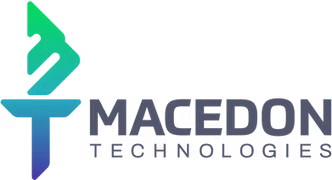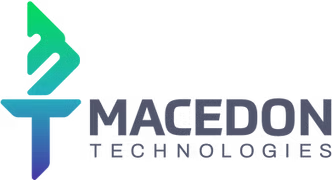Navigating the No Surprises Act's Challenges for Healthcare Providers


Macedon’s award-winning No Surprises Act (NSA) software solution
leverages AI Automation to automate 85% of the No Surprises Act's claim processing.
The healthcare landscape has undergone significant changes with the introduction of the No Surprises Act, enacted on January 1, 2022. While this legislation aims to protect patients from unexpected medical bills, it has also introduced administrative headaches for healthcare providers. We have worked with customers to overcome these new complexities in a scalable way, to make sure they can continue to get paid for their critical services.
Curious how Macedon can simplify the No Surprises Act for you, too? Schedule a chat with Seth.
Understanding the No Surprises Act
The No Surprises Act is designed to shield patients from surprise medical bills, particularly those from out-of-network providers in emergency situations or during treatment at in-network facilities. The Act includes a prescriptive process for healthcare providers in this situation:
-
Out-of-Network Billing Protections: Patients are protected from being charged more than in-network rates for emergency services and certain non-emergency care.
-
Open Negotiation Period (ONP): A 30-day window where providers and insurers can negotiate payment disputes.
-
Independent Dispute Resolution (IDR): A formal arbitration process to resolve disputes if negotiations fail during the ONP.
Impact on Healthcare Providers

While the No Surprises Act offers essential protections for patients, it has also brought significant challenges for healthcare providers, including:
-
Increased Administrative Work: Managing the ONP and IDR processes requires substantial manual effort, including sorting through numerous emails, parsing data, and handling disputes.
-
Worsening Operational Inefficiencies: While manual tools such as Excel and Smartsheets may have worked in other scenarios, providers managing large volumes of disputes will find these tools can’t hold up to this challenge.
-
Financial Uncertainty: Delays and errors in managing disputes can result in revenue losses and difficulties in financial forecasting - leaving some firms bankrupt.
As noted by FTI Consulting, the slow dispute resolution process and administrative complexities have significantly impacted providers' cash flows, contributing to financial instability and increasing the burden on revenue cycle management (FTI Consulting).
Our Approach
Here at Macedon, we leverage the Appian platform to streamline and optimize the ONP and IDR processes. Our solution includes:
-
Automated email sifting. ONP, IDR, and IDRE emails are automatically identified and routed, reducing administrative burdens and freeing up valuable time for staff.
-
Data classification and parsing reduces manual effort and ensures accurate and efficient dispute processing.
-
IDRE selection, but better. IDRE selection is 100% automated, continuously updating and tailoring based on each organization’s unique payer IDRE strategy:
-
Scalable and automated. Excel and Smartsheets are great - but not for this. Macedon’s solution scales to reliably handle hundreds of thousands of IDR records without lifting a finger.
-
Enhanced revenue accountability through identification and tracking of inbound revenue from ONP, IDR, and IDRE reimbursements, which supports better revenue management and financial stability.
Our customers are reaping the benefits of enhancing their No Surprises Act processes. According to an article by the Healthcare Financial Management Association, they aren’t alone: the integration of automated solutions has enabled healthcare organizations to manage these administrative tasks more efficiently, allowing for a more strategic approach to compliance and revenue management (HFMA.org).
What does this all mean?
The No Surprises Act, while beneficial for patients, has introduced new complexities for healthcare providers. By leveraging Macedon's expertise with Appian's powerful platform, providers can navigate these challenges more effectively, achieving operational excellence and financial stability. Automation not only reduces administrative burdens but also enhances efficiency, scalability, and revenue accountability, making it an indispensable tool in the modern healthcare landscape.
Learn more
Want a more in-depth read on this critical issue? Read our deep dive: No Surprises Act: How Automating can Increase Revenue
For more information on how organizations like yours can create a winning strategy with automation under the No Surprises Act, read the full article on the Healthcare Financial Management Association website here.
To explore the continued challenges related to financial revenue reconciliation between healthcare and insurance, visit FTI Consulting's detailed analysis here.
Curious how Macedon Technologies can simplify your work? Schedule a chat with Seth.

